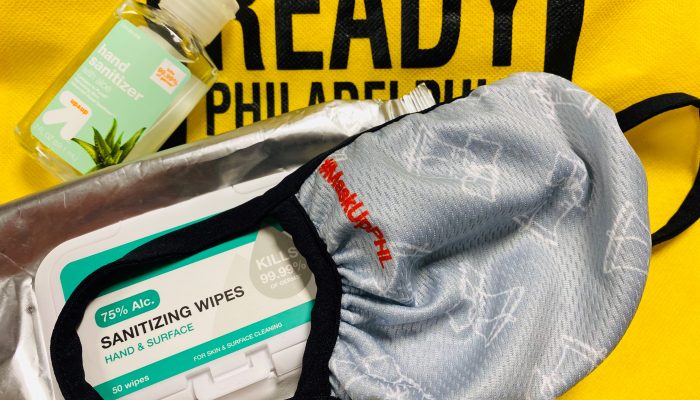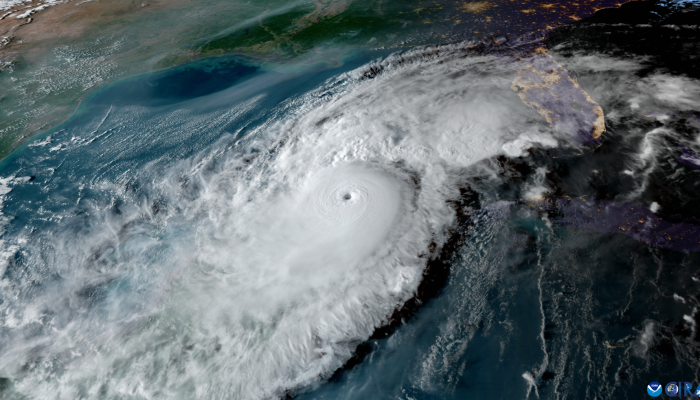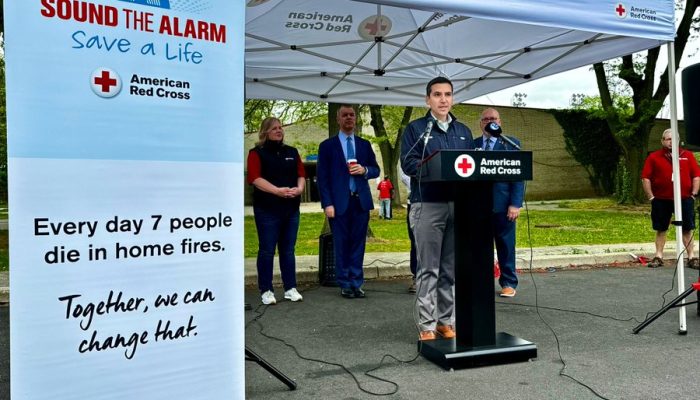by Joel Landau |Communications Specialist, OEM July 29, 2020
The COVID-19 pandemic has impacted and changed what we consider to be normal.
Preparing for and experiencing emergencies is no different.
Social distancing and combating the coronavirus infection with masks, face coverings, sanitizers, and soap are now considerations when preparing for an emergency.
This is especially important now during Atlantic hurricane season, which runs through the end of November.
Hurricanes, tropical storms, and other severe storms, like thunderstorms, bring high winds, heavy rain, and the potential for flooding, power outages, and blocked roads.
Keep in mind, you may need to adjust any preparedness actions based on the latest health and safety guidelines from the Centers for Disease Control and Prevention (CDC) and local officials.
Steps to Emergency Preparedness
Get your paperwork in order
- Review your insurance and ask your insurance company for a check-up. The cost of flood insurance can be a drop in the bucket compared to the cost of flood damage.
- Make sure you have enough homeowners or renter’s insurance for your residence. Standard homeowners’ insurance does not cover flooding. Whether you’re a homeowner or renter, you’ll need a separate policy for it, and it’s available through your company, agent, or the National Flood Insurance Program.
- Flood insurance requires a 30-day wait period, so act before the storm. Not all insurance policies are the same. Coverage amounts, deductibles, and payment caps can vary significantly. Talk with your insurance provider to find what fits you best.
- If you’re a business owner, have a Business Continuity Plan in place. An emergency, such as a hurricane, can close your doors permanently. Federal statistics say up to 40% of businesses never recover after a major disaster. Be Ready. Stay Open.
- Keep your important documents safe. If your paper files and personal computer are lost or damaged in a fire, flood, or other emergency, your personal information, bank statements, and insurance records could be destroyed. Make copies of ID, social security cards, passports, banking, and insurance documents. Take photos and store digitally or put them in you Go Bag or water-proof Shelter-in-Place kit.
Prepare to mobilize
- Stay connected to important information. Sign up for ReadyPhiladelphia alerts.
- Create a Family Emergency Plan that includes the possibility of evacuation. Take the needs of all in your house into consideration, including your pets. Check in with neighbors that may need help.
- Be prepared for power outages. Know what to have in your home and how to report and track power outages and downed trees.
- Find flood gauge information to monitor creek and river levels near you.
- Conditions may require you to shelter-in-place and seek protection in your home, place of employment or other location when disaster strikes. Severe storms may cause power to be out for days or roads that are flooded or blocked. Have enough non-perishable food, water, and other supplies in your emergency kit for every member of your household, including pets, to last at least 72 hours. Taking COVID-19 into consideration, FEMA recommends adding two cloth face coverings for every family member along with adding cleaning items, like soap, hand sanitizer, and disinfecting wipes, to an emergency kit. After an emergency, these supplies may be limited.
During an Emergency
- If you need to evacuate, you will have to leave your home quickly. Plan now on where you can go and what you will need to take with you in your Go Bag. Contact family and friends out of the area to see if you can stay with them. If you must go to a community or group shelter, remember to follow the latest guidelines from the CDC for protecting yourself and family from COVID-19.
- Take cleaning items with you like soap, hand sanitizer, disinfecting wipes, or general household cleaning supplies to disinfect surfaces you may need to touch regularly.
- Keep social distancing in mind by maintaining at least six feet between you and persons not part of your immediate family while at a shelter. Avoid crowds or gathering in groups as much as possible.
- Watch high winds. Secure loose objects, including; trashcans, recycling containers, patio furniture, tents, and outdoor signage at private or business properties and construction sites. Philadelphia’s Department of Licenses & Inspections urges construction sites to use extreme caution and secure loose materials, especially those on the upper floors of buildings under construction. Temporary fencing, signage and tarps at constructions sites must be secured.
- Know how to report a downed tree. If a tree falls during a storm and it’s blocking a road, or it has fallen on a house, car or property, call 911. If a tree has fallen on electrical wires, call PECO’s emergency line at (800) 841-4141. Non-emergency tree requests can be submitted through Philly 311.




